Zaneta Mascarenhas MP
House of Representatives, Parliament House, Canberra
Private Members' Business
I do recognise that the cost of living is the No. 1 issue in my community and across Australia. Household budgets are doing it really tough. The thing is that we had a moment in our history where we could have had a government that was working towards the way that we build our nation to deal with times of crises, and, frankly, we did not see that under the coalition government. The challenge that we're facing at the moment is a balancing act of making sure that we provide support to the community while also having spending restraint. Labor acknowledges these pressures. This has been our No. 1 issue. It is our No. 1 priority. This is the reason why every single taxpayer across Australia is getting a tax cut. It's not just some; it's everyone. That was effective from 1 July.
If I cast my mind back to when we announced this policy at the beginning of this year and think of the coalition's response, it was initially to oppose it. Then it was, 'Oh, wait, no—let's backtrack.' Then it was, 'Let's just introduce it and change it so only the richest get tax cuts.' Then they say that they would change it, and then they waved it through. So what we initially saw was a coalition that was prepared to throw low- and middle-income earners under the bus.
But what we did was have a look at our policy. Treasury said that there was a way to look at our tax cuts and implement them in a way that would not be inflationary but would actually provide targeted support to those who needed it most. The truth is that that's what responsible governments do. They have a look at policies, they listen to the frank and fearless Public Service and they work out what is right for our communities. So we did have a change in our policy, but this is a policy that will help communities but also not put additional inflationary pressure on our nation.
We are also looking at targeted energy relief, and so every household across Australia will be getting $300 off their electricity bill. In Western Australia, because we have the state and federal Labor governments working together, Western Australian households will be getting $700 off their electricity bills.
What we also saw under the previous government was a government that was prepared to basically keep wages down. If you think about it, they were basically putting the screws on incomes for workers and our lowest-paid workers. We, the Albanese Labor government, have helped 2.6 million low-paid workers get a pay rise, and they're up to their third consecutive pay rise. We did this because we know that households are doing it tough and it was our lowest-paid workers that did the heavy lifting during the pandemic.
We're also strengthening Medicare. We're doing this because we understand that all Australians, irrespective of what their income is, should have access to a good-quality healthcare system. We also looked at our medication expenses. So we saw a reduction in the Pharmaceutical Benefits Scheme co-payment from $42 to $30. But we also introduced 60-day dispensing, where people are effectively getting double the medicine without needing to go and visit a GP and without needing to go to a pharmacist. This is something that's tangibly helping families.
The other thing we introduced was around HECS relief. We had seen, from a university debt perspective, that this was linked to CPI, but wages weren't increasing as quickly as CPI. So now we have a policy that looks at the consumer price index and also the wage price index, and whichever of the two is the lowest is what HECS will be indexed at. With this policy we have effectively wiped $3 billion of debt. We're also looking at cheaper groceries by strengthening the food and grocery codes. Each of these policies, whether tax cuts, cheaper medicines or HECS debt relief, is tangibly helping households.
